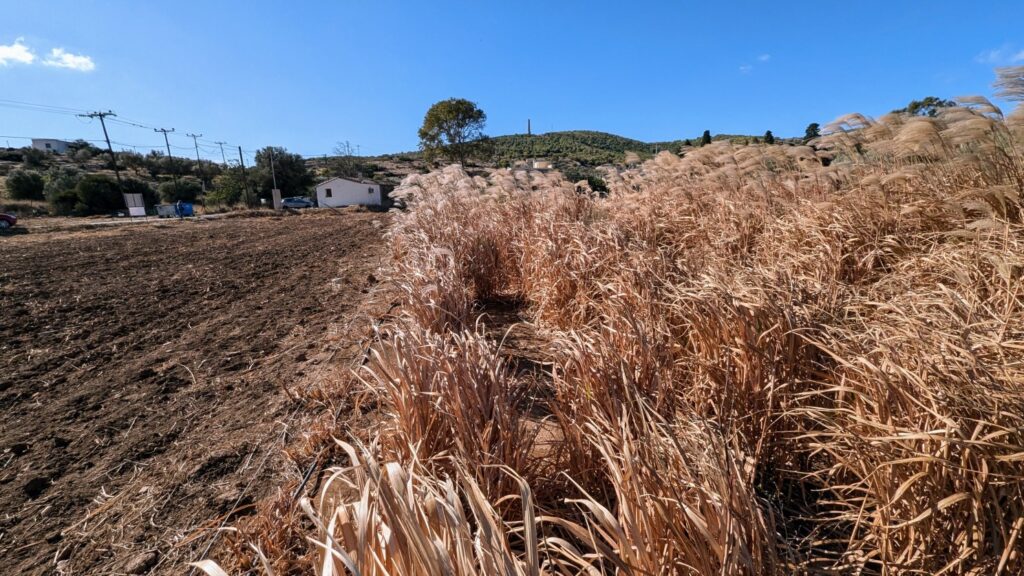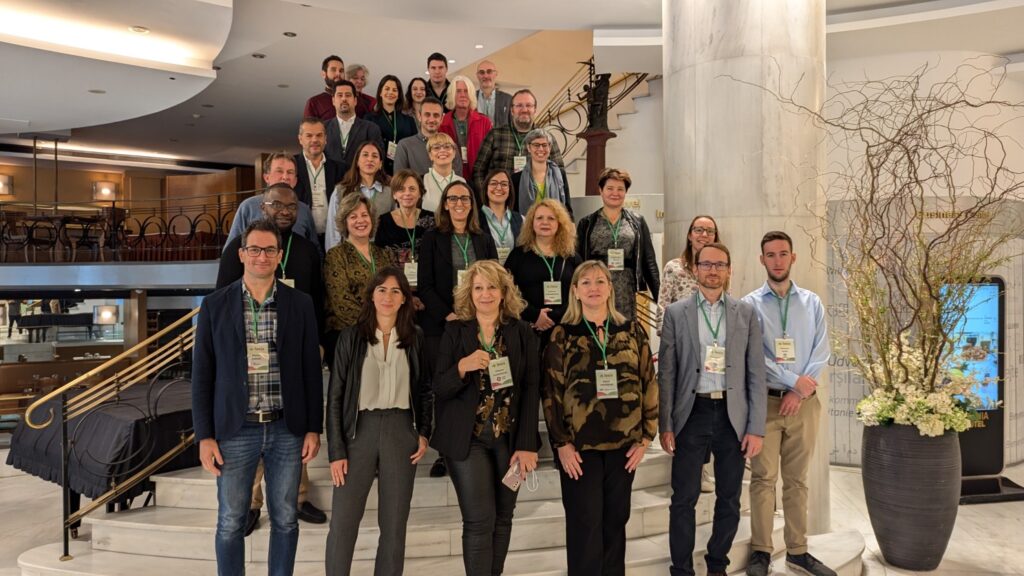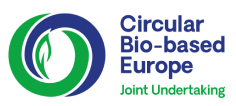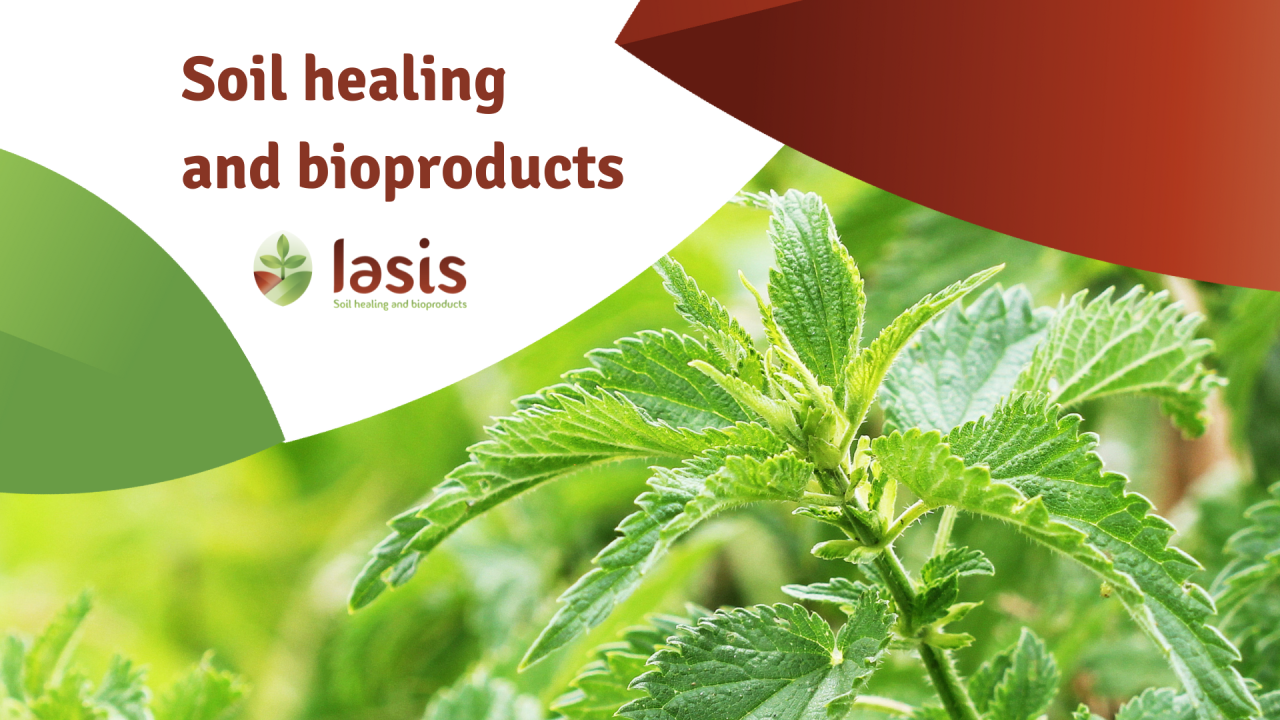IASIS – Soil healing and bioproducts from contaminated and saline land
Today, on #worldsoilday, we’re highlighting the critical issue of soil health and the urgent need for sustainable solutions to address soil contamination and salinity. The IASIS project, a new Horizon Europe project launched in October, is tackling this challenge head-on, by developing innovative solutions for the production of a wide range of bio-based products, obtained from non-edible crops, grown on contaminated and saline land.
Addressing environmental challenges
In 2018 a report from the European Commission Joint Research Centre estimated that there are 650,000 registered sites in the EU+UK where polluting activities took place or are still taking place. These sites, polluted by diffuse or point-source contaminants, can pose a significant risks to human health and ecosystems. A mapping study conducted in 2023 by researchers at Wageningen University as part of the activities of GOLD Horizon 2020 project, estimated that the potentially contaminated sites due to military training activities, industrial activities, mining and landfills, amounts to over 2 million hectares in the EU+UK. Contaminated sites cannot be used for food and feed production due to high risk of bioaccumulation of the contaminants in edible crops, however, these sites can be used for the cultivation of industrial crops.
Equally concerning is the increasing salinization of soils, particularly in Europe’s coastal regions, leading to severe farm land degradation. Approximately 6.7 million hectares are classified as salt-affected, with an additional 72 million hectares considered sodic in EU27 – an area double the size of Germany (source FAO). The risks of having sea water penetrating inland and affecting the groundwaters are rising due to climate change and thus the saline affected areas are expected to increase. The major threats are along coastal areas in the south of Europe where the use of saline agricultural water is leading to desertification.
Innovative solutions through phytomanagement
IASIS project draws inspiration from Greek mythology: Iasis was one of the nymphs whose spring waters were believed to cure diseases, and in modern Greek language iasis still means cure or remedy. True to its name, the project aims at developing and demonstrating innovative phytomanagement solutions for contaminated and saline land with the use of industrial crops, while producing intermediate and high-value end products for the bio-based economy. The project is supported by the Circular Bio-based Europe Joint Undertaking (CBE JU) and coordinated by the Greek Centre for Renewable Energy Sources and Saving (CRES) with a consortium of seventeen partners from seven EU countries, including universities and research centres, industries, SMEs and farmers advisories.

Lighthouses for research, co-creation and demonstration
The project’s research and demonstrations will span eight diverse sites across Europe. These sites will host field trials to evaluate the performance of specially selected crops that exhibit tolerance to high levels of pollutants and salinity. Here the crops will be supported by the application of optimized microbial consortia, enhancing their ability to grow in challenging soil conditions. These field trials are central to the goal of developing effective phytomanagement strategies for contaminated and saline land, and will also act as lighthouses where the farming community and other local stakeholders play an active role from the early stages, to co-design practical solutions applicable to contaminated and saline soils, that can be eventually replicated in other affected areas.
Bio-based product development
IASIS will advance sustainable extraction and processing techniques for valuable compounds from industrial crops. Oil crops like crambe, camelina, carinata, and safflower will be used to produce biodegradable plastics, bioherbicides, resins, and coatings. Lignocellulosic fiber crops such as sorghum, industrial hemp, nettle, and salicornia will be processed into intermediate products like cellulose, nanocellulose, phenols, and proteins. These will then be used to create end products like particle boards, biocomposites, adhesives, coatings, and fillers for biomaterials and bioplastics. The project will also design a decision support system (DSS) to assess the best biomass-to-products pathways and to identify the most promising ones for both economic and environmental sustainability.
ASIS’s innovative approach to phytomanagement and bio-based product development holds great potential for the European bioeconomy. Today, approximately 4.6 million tons of bio-based chemicals and materials are produced by biorefineries in the EU and it is estimated that 1.1 to 3.1 million tons of additional supply could be added by 2030. Sustainable biomass sources will be required to meet the growing demand of the bio-based industry. By developing solutions to use contaminated and saline lands for industrial crop cultivation, IASIS will not only create a sustainable source of feedstock for biorefineries but also contribute to land reclamation and job creation in affected regions.

In the coming weeks and months we will be sharing all the latest updates and exciting developments of IASIS right here on our LinkedIn page. So, if you’re passionate about sustainable agriculture solutions, environment and bio-based products follow our page and join us on this journey. Let’s connect and grow together!
PARTNERS
Centre for Renewable Energy Sources and Saving (CRES) (Coordinator), NOVAMONT S.P.A.,
Wageningen University & Research, CHIMAR HELLAS Division, UBFC – Université Bourgogne-Franche-Comté, National Technical University of Athens ETA Florence Renewable Energies Université de Liège Uniwersytet Marii Curie-Skłodowskiej w Lublinie, Celabor srl @Ilios Symvouleftiki (Greece) University of Bologna (Alma Mater Studiorum – Università di Bologna) Faculdade de Ciências e Tecnologia da Universidade NOVA de LisboaUniversité Catholique de Louvain Bio4plas – Biopolímeros, Lda. @quadrado selvagem (Portugal)
ACKNOWLEDGEMENTS
IASIS – Curing contaminated and saline land with Industrial crops and producing biomass for high-value applications, is a Research and Innovation Action co-funded by the European Union’s Horizon Europe Programme under Grant Agreement 101157430. The project is supported by the Circular Bio-based Europe Joint Undertaking and its members, it started on 1st October 2024 and will run through September 2028. Views and opinions expressed are however those of the author(s) only and do not necessarily reflect those of the European Union or CBE JU. Neither the European Union nor the CBE JU can be held responsible for them.




